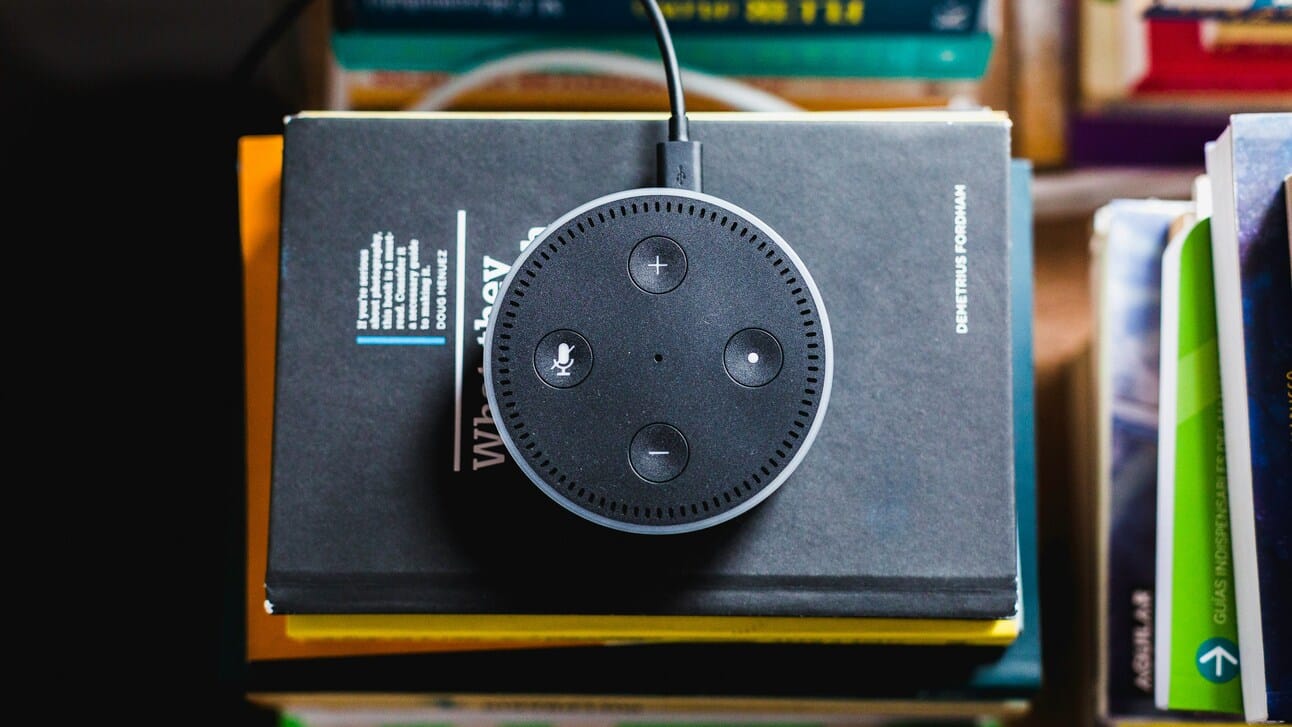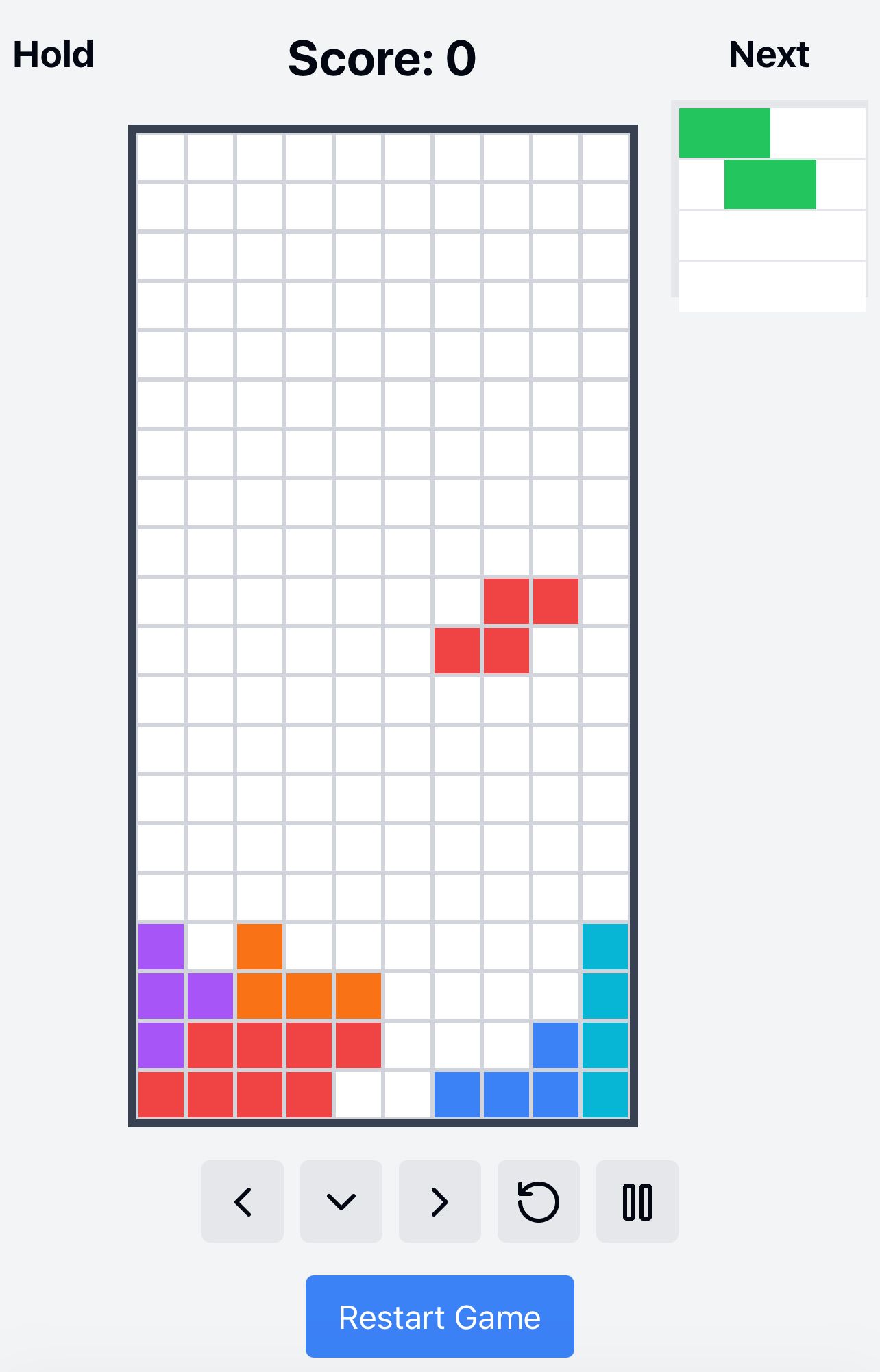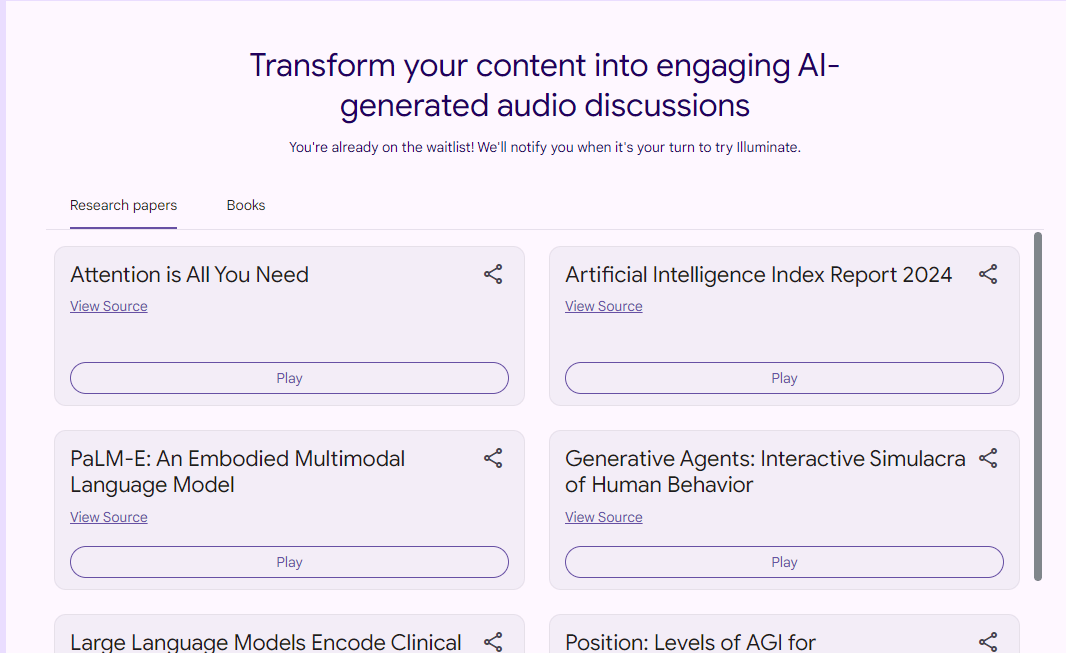- AI Weekly Insights
- Posts
- AI Weekly Insights #44
AI Weekly Insights #44
Alexa's Evolution, Doom's AI Revival, and Google’s Audio Revolution
Happy Sunday,
Buckle up, AI enthusiasts! This week’s edition is packed with fascinating insights, from Amazon’s bold Alexa upgrade to Google’s experimental "Illuminate" project. Whether you're a techie, a gamer, or just curious about the future of AI, there’s something here for everyone.
Let’s dive into the insights and explore together!
The Insights
For the Week of 08/25/24 - 08/31/24 (P.S. Click the story’s title for more information 😊):
What’s New: Amazon is looking to launch a revamped version of Alexa in the fall. This new Alexa will be powered primarily by Anthropic's Claude AI models, marking a shift from Amazon's usual in-house approach.
Alexa + Claude: The "Remarkable" Alexa is expected to be a subscription-based service, costing between $5 and $10 a month, and offering more complex conversational abilities. The decision to use Claude reportedly came after internal struggles with their own AI models, which failed to deliver satisfactory performance. Expected features include shopping advice, news aggregation, and enhanced home automation capabilities.
Why It Matters: Amazon has been steadily introducing generative AI across its products, as we saw with the Rufus AI in their shopping app. With competitors like Apple also updating their AI assistants, the stakes are high for Amazon to demonstrate that Alexa can keep pace in the evolving AI landscape. The success of this subscription-based model will likely hinge on its integration with Amazon's extensive ecosystem of IoT devices, offering a more personalized and seamless experience. Whether users will find this new offering compelling enough to justify the price tag is yet to be seen. One thing is certain: many companies are betting big on AI in an increasingly competitive market.

Image Credits: Andres Urena / Unsplash
What's New: Researchers from Google and Tel Aviv University have unveiled GameNGen, an AI model that can simulate the classic game Doom in real-time using AI image generation techniques.
The Future of Gaming?: GameNGen uses a modified version of Stable Diffusion to generate new frames of Doom gameplay at over 20 fps. The model was trained on extensive footage of Doom gameplay, recorded by an AI agent playing the game. In tests, human raters sometimes failed to distinguish between real Doom footage and GameNGen's output. The system does have limitations, including a short memory span and the inability to generate true novelty.
Why It Matters: As a video game enthusiast, I'm always excited to see AI pushing the boundaries of what's possible in gaming. This year has seen a few game-related AI projects, and GameNGen is another leap forward. While it's an early concept, the potential to create games from simple prompts or images is thrilling. It could make game development more accessible to those without coding skills. However, it also raises questions about how AI-generated games will handle issues like copyright and originality. Will we soon be able to create an entire game world by simply describing it? The possibilities are endless, and I can’t wait to see what the future holds.
What's New: OpenAI and Anthropic have agreed to provide the US government with access to their latest AI models before they are publicly released, aiming to improve AI safety.
AI Safety: These agreements, signed with the US AI Safety Institute, aim to enhance safety protocols by allowing the government to evaluate potential risks and offer feedback. The decision underscores the growing focus on AI safety, especially as governments, like California, push forward with legislation aimed at regulating AI systems. While some in the industry argue that these measures could slow innovation, others see it as a necessary step to prevent unforeseen consequences of rapidly advancing technology.
Why It Matters: This move is a big win for AI safety advocates, signaling a shift towards more collaborative efforts between AI developers and regulators. It's particularly interesting in light of recent reports about OpenAI's Project Strawberry, a GPT-5-like model potentially set for a fall release. This next-gen model that could significantly advance capabilities in math, programming, and complex reasoning. While some critics argue that these safety measures have slowed down the release of new features, the long-term benefits of ensuring AI operates within safe and ethical boundaries cannot be overstated. Imagine the possibilities if we can balance rapid innovation with robust safety protocols. The future of AI could depend on getting this balance just right.

Image Credits: Stanford Center for AI Safety
What's New: Anthropic has made its Artifacts feature available to all Claude users across all plans, including on iOS and Android apps.
Creativity + Collaboration: Artifacts provide a dedicated space where users can instantly see, iterate, and build on the work created with Claude. The feature supports various outputs like code snippets, flowcharts, SVG graphics, websites, and interactive dashboards. The ability to publish and remix Artifacts across the community further amplifies its creative potential, allowing users to iterate on each other's work.
Why It Matters: Artifacts, along with the Projects feature, sets Claude apart in the AI assistant space. As someone who's used both Claude and ChatGPT, I've found Artifacts to be a game-changer, especially for quickly bringing coding ideas to life. A friend of mine put it perfectly: "This means anyone can be a developer." I've personally used it to prototype small games like Tetris and Connect 4, and for various testing purposes. As AI continues to evolve, tools like this are bridging the gap between imagination and creation, making the once complex world of development accessible to all. It's exciting to think about the innovations that might emerge as more people gain the ability to bring their ideas to life with just a conversation.

AI Project Showcase
Google's "Illuminate" is an experimental AI tool that transforms written content into engaging audio discussions, simulating a podcast-style conversation about the material. Illuminate represents a significant step towards making complex information more accessible and engaging.
By transforming dense written content into conversational audio, it opens up new possibilities for learning and information consumption. It's not just about convenience; it's about breaking down barriers to knowledge and making learning more inclusive and engaging for everyone.
Illuminate is currently available on a waitlist basis. In the meantime, Google has pre-loaded several research papers and books for users to experience the tool's capabilities.
Check it out at: https://illuminate.google.com/

Your enthusiasm and curiosity drive our exploration through AI's rapidly evolving landscape. I look forward to your insights, questions, and assistance in spreading our discoveries with the AI community.
Until next Sunday, keep exploring and stay engaged!
Warm regards,
- Kharee